One Woman’s Nomadic Search for Home
April Isaacs’ Tale of Freedom and Finding Her Sacred Self
There’s a magnetic pull to the road less traveled—a call that echoes in the hearts of wanderers, adventurers, and nomads. I felt it tugging at me years ago, and now, as I reflect on my journey, I see its mirror in the lives of people like April Isaacs.
I first stumbled upon April’s Substack writings, her tales of wandering North America in a van named Firefly, and her exploration of what it means to truly find a home within oneself. What she describes in her essays felt like a long-lost conversation I had been waiting to continue.
Yes, April’s story is about van life. But it’s more — look at it as a spiritual quest, one that resonates with my own nomadic experiences and the essence of what I aim to offer through The Chocolate Taoist.
Through my own wandering path—from cities to small towns, from suburban sprawls to mountain peaks—I’ve found that nomadism offers not just freedom, but wisdom — philosophical views that stretch beyond the physical realm, into the spiritual and philosophical.
The concept of “nomadic wisdom for living a more interconnected and expansive life” isn’t just a slogan for The Chocolate Taoist. Rather, it’s a way of being. And April’s journey serves as a perfect testament to that.
I’ve always believed that life on the move has a deeper meaning—one that forces you to confront both the vastness of the world and the untamed wilderness inside yourself. April’s journey, which began just before the pandemic, echoes this belief.
After leaving a long-term relationship and her home in New Orleans, she set out, first intending to learn Spanish in Mexico. But in a pivot, she quickly found herself drawn to the American West, where she discovered a deeper part of herself — a woman of the wilderness, a solo camper, and someone on a journey to reclaim her spirit.
In her words, “I couldn’t go back to my old life after that. It was as if the chains of her previous life had been broken, and what remained was raw, untamed freedom.”
I (Diamond Michael) think back to my own transitions, moving from city to city, often untethered from what others might call “home.” It was never just about the physical location for me, and it wasn’t for April either. It’s about the spiritual and emotional transformation that takes place when you surrender to the unknown and allow the road to shape you.
There’s a beauty in that surrender—a letting go of expectations and a trust in what the universe might unfold. April’s sobriety marked a profound shift in her own journey, granting her the courage to leave a relationship and life that no longer aligned with her spirit. That trust in herself, that daily promise not to drink, empowered her to begin her nomadic life, and what followed was a series of serendipitous moments and self-discoveries.
For me, the draw toward nomadism has always been tied to an inner need to shed the layers of what society expects—to embrace a life that’s more expansive, more authentic. The Chocolate Taoist, my digital expression of Taoist nomadic wisdom, stems from that same root. It’s about finding peace in the movement, in the impermanence, and, ultimately, within oneself.
April’s life in Firefly—her cozy, mobile home on wheels—provides a backdrop for her musings on the nomadic life. Yet, she says that it’s not always easy, and it’s certainly not without its moments of chaos.
She shares how in the beginning, there was a sense of urgency to experience as much as possible. “I thought, ‘I don’t know how long I’ll be doing this, so I had better pack in as much as I can,’” she explains. This led to burnout and loneliness, a realization that mirrored my own experience in constantly seeking out the next thing, only to realize that the depth I craved could only be found by slowing down.
She’s since learned to stay put for a while, sometimes a month or two in one area, allowing herself to become familiar with the people, the places, the energy of a location. It’s a lesson in presence, one that I, too, have learned — that it’s not about how far you travel, but how deeply you connect with where you are.
This has been a core philosophy in my own life and writing—whether I’m wandering through new towns or exploring the internal landscapes of my mind, the goal is always to be fully present, to sink into the now.
What April calls “the call to wandering” is something I’ve often described as a search for something lost. She believes that we, as a society, have lost our connection to the earth and our inner wild. That, she argues, is the root of every existential crisis, the longing that drives so many of us toward a more nomadic life. It’s not just about finding ourselves—it’s about reconnecting with something ancient and primal.
I’ve felt that connection, too. During my own travels, I’ve had moments of clarity, standing on a mountain or staring at the ocean, where I’ve felt more alive, more connected to the universe than I ever did in a concrete jungle.
And I believe this is where April’s story resonates most deeply with me and the vision of The Chocolate Taoist. It’s not about running away from something, but running toward something—toward a deeper understanding of who we are and our place in the world.
April’s experiences, from near-death encounters to wild romances, inform her creative process as both a writer and photographer. Every experience is material, she says, viewing her life through that lens. I, too, have found that my nomadic wanderings fuel my creativity—whether through writing, teaching, or speaking.
There’s something about being untethered that opens up the mind and heart, allowing us to see the world with fresh eyes, to capture the fleeting beauty of life in words, images, or ideas.
But there’s also the practical side of nomadism, something April touches on with both humor and honesty. Living in a van might seem romantic—and to some extent, it is—but it’s also about finding your favorite parking spots, knowing where to dump gray water, and figuring out the logistics of life on the road. These small acts of stability, she explains, offer a sense of home. It’s a practice in self-trust, in meeting her own needs, something she’s getting better at with time.
And isn’t that what we’re all trying to do? Whether we live in a van or a suburban house, the journey toward self-discovery is about learning to meet our own needs, to create a sense of home within ourselves, no matter where we are.
April’s reflections on the wilderness, on her connection to nature, further underscore this point. Whether locking eyes with a coyote or feeling a stone soothe her grief after losing a beloved pet, nature reminds her—and all of us—of our place in the grand scheme of things.
As April works on her memoir, she offers a glimpse into the themes and stories she hopes to share. Her life on the road, like mine, is filled with lessons about freedom, self-reliance, and the beauty of the unknown.
And as I continue to weave nomadic wisdom into The Chocolate Taoist, I find myself wondering: Will more people embrace a nomadic lifestyle, especially as housing costs continue to rise and the traditional idea of “home” becomes less attainable? Will we see a future where van life or some form of mobile living becomes not just a romanticized dream, but a viable, perhaps even necessary, option?
In a world that feels increasingly chaotic, where stability seems fleeting and the future uncertain, perhaps the answer lies in embracing the unknown. In learning, as April and I have, that home is not a place—it’s a state of being.
You are invited to subscribe today as a paid supporter. Or I’d be grateful if you’d tip me some coffeehouse love here. Your contributions are appreciated!
Every bit counts as I strive to deliver high quality feature articles into your inbox on a daily basis. Never any paywalls, just my raw thoughts that are open to everyone on what it means to be human.

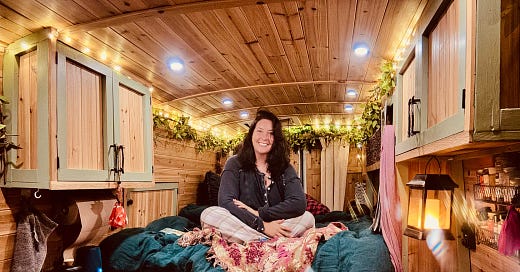





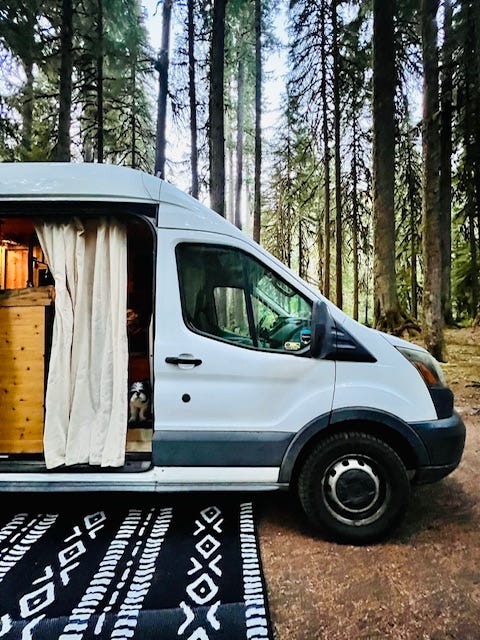
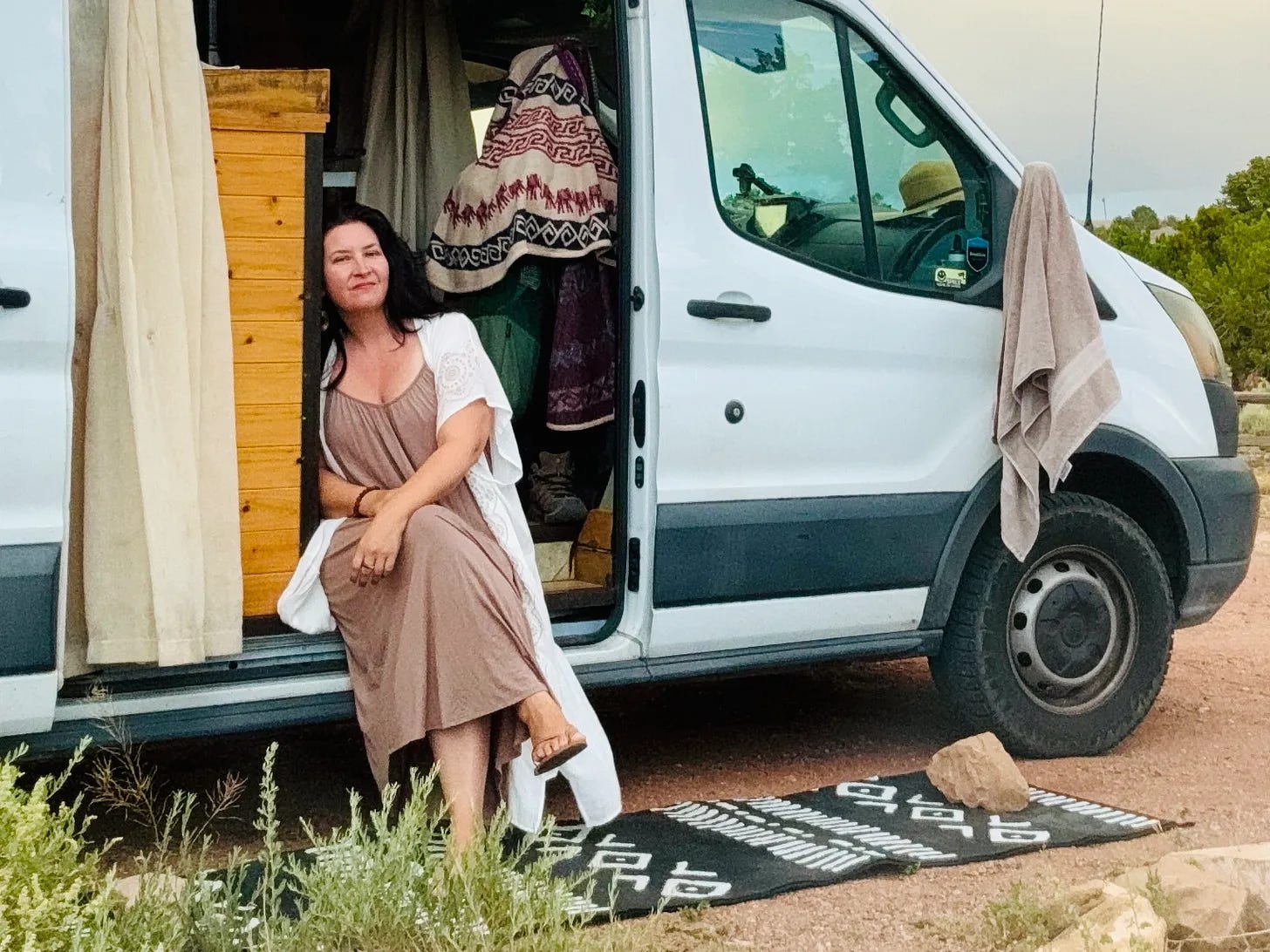
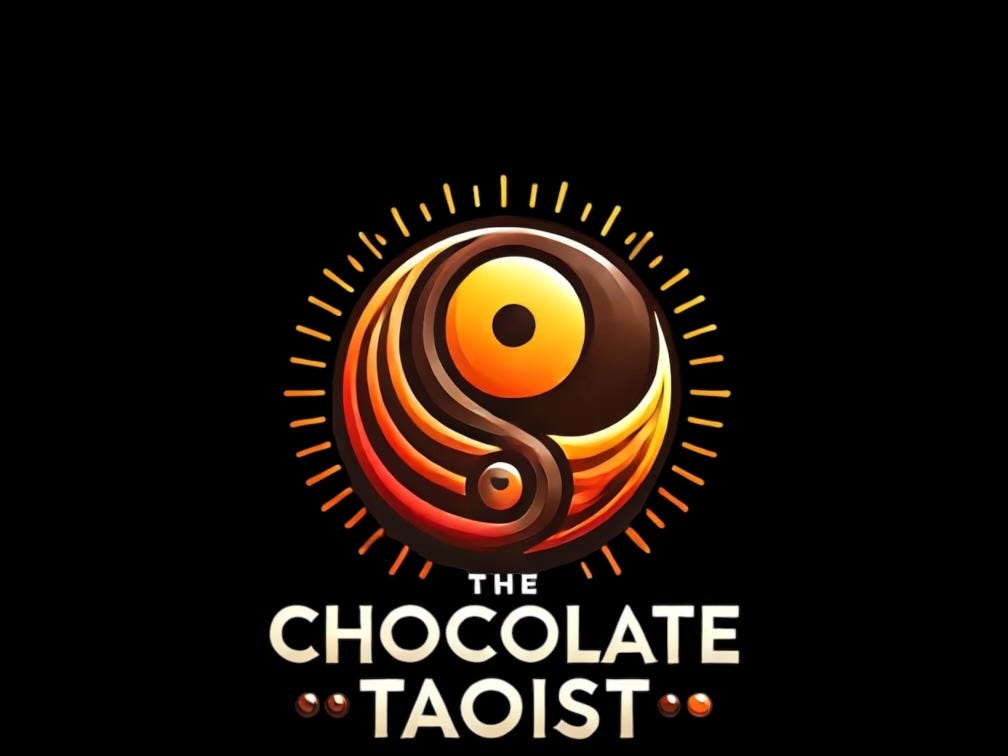
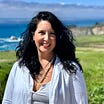
“What is it you plan to do with your one wild and precious life?” is the final line of Mary Oliver's poem, The Summer Day. The poem appears in her 1992 collection New and Selected Poems.
The poem is about living in the moment and believing that it's okay to start again each day. It suggests that we should rethink what a productive day looks like, and that it might be better to spend time getting to know something simple, like a grasshopper, instead of being tied to screens, email, and chores.
So many powerful takeaways from this piece. Thank you🙏🏼✨
“It’s not about running away from something, but running toward something—toward a deeper understanding of who we are and our place in the world.”